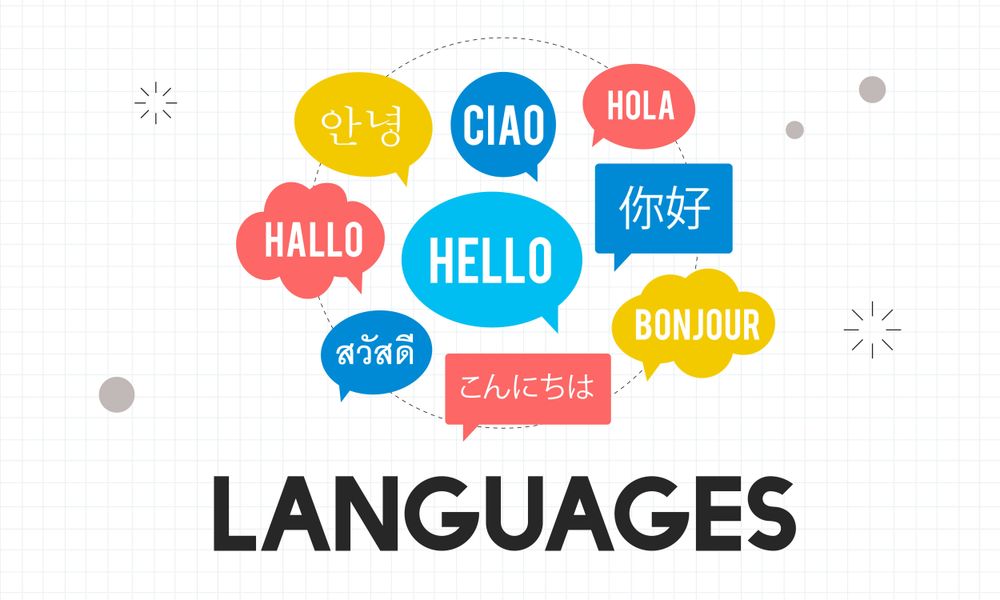In a world where technology evolves at lightning speed, the media production landscape is undergoing a revolutionary transformation. The integration of Artificial Intelligence (AI) isn't just a fleeting trend; it's a groundbreaking shift reshaping the very foundation of content creation, editing, and distribution. From automating routine tasks to amplifying creative potential, AI is redefining the way media professionals work, ushering in unprecedented efficiency and innovation.

Traditionally, media production has depended on human creativity and labor. However, as AI technologies advance, they increasingly augment these established methods, opening up new horizons for storytelling and audience engagement. By leveraging machine learning and data analytics, media companies are unlocking fresh avenues to connect with viewers and tell compelling stories.
This article invites you to delve into the dynamic interplay between AI and media production, uncovering its diverse applications, benefits, challenges, and future prospects. As we traverse this thrilling intersection of technology and creativity, it becomes vital for industry professionals to grasp AI's transformative role. Join us on this exploration of how AI is reshaping the media landscape and what it signifies for the future of content creation.
The Rise of AI in Media Production

The integration of Artificial Intelligence (AI) into media production signifies a transformative shift in the industry. Traditionally, media production has been labor-intensive, relying heavily on human creativity and manual tasks. However, AI technologies are rapidly changing this landscape, enabling companies to streamline operations and enhance creative output.
Before AI's rise, media production was marked by extensive manual processes across various stages, from scriptwriting to distribution. This reliance on human effort often resulted in inefficiencies, high costs, and challenges in meeting growing consumer demands. The urgency for innovative solutions became particularly evident during the COVID-19 pandemic when digital consumption surged. According to PwC’s Entertainment & Media Outlook, the U.S. media industry was projected to reach $759 billion by 2021, underscoring the critical need for transformation.
In response, AI is emerging as a game-changer in media production. Major companies are adopting AI tools to automate repetitive tasks, improving efficiency and reducing costs. For example, Warner Bros has utilized technology to manage film budgets and streamline production processes. A recent study indicates that about 35% of broadcast TV networks and 30% of cable TV networks in the U.S. are already employing some form of AI, marking a significant shift toward data-driven content creation.
As AI continues to evolve in the media landscape, its rise represents a fundamental shift that will redefine how content is produced and consumed. Embracing these technologies will be essential for media professionals seeking to thrive in an increasingly competitive environment.
3 Key Applications of AI in Media Production

The integration of AI in media production is sparking groundbreaking innovations that significantly boost efficiency, creativity, and personalization. Let's explore some of the key applications of AI that are reshaping the media landscape.
1. Content Creation
- Automated Journalism
AI is transforming content creation through automated journalism, where algorithms generate news articles from structured data with minimal human input. Media outlets like The Washington Post utilize AI systems such as Heliograf to produce routine reports on topics like sports and elections. This enables journalists to concentrate on more intricate stories while ensuring timely coverage of important events.
- Script and Storyboard Generation
AI tools are also streamlining the pre-production process by assisting in generating scripts and storyboards. By analyzing existing content and audience preferences, these tools can suggest engaging plotlines or dialogue that resonate with viewers, enriching the creative journey.
2. Post-Production
- Video Editing and Enhancement
AI-driven video editing software is automating labor-intensive tasks such as cutting, color correction, and sound editing. Tools like Adobe Sensei harness machine learning to optimize video content, providing intelligent suggestions for edits and enhancements. This allows creators to focus more on storytelling and less on technical details.
- Transcription and Captioning
Automatic speech recognition (ASR) technology is revolutionizing how audio and video content is transcribed in real time. This speeds up the captioning process while ensuring compliance with accessibility standards. Companies like Verbit offer solutions that streamline transcription workflows, helping media producers save time and reach a broader audience.
- Live Broadcasting
During live events, AI can analyze viewer engagement metrics in real-time, empowering broadcasters to make informed decisions about camera angles, highlights, and content delivery. This enhances the viewer experience by ensuring that audiences receive the most engaging content as it unfolds.
3. Personalization
- Content Recommendations
AI algorithms are adept at analyzing user behavior and preferences to deliver personalized content recommendations. Streaming services like Netflix employ sophisticated recommendation engines to suggest shows and movies tailored to individual viewing habits, significantly boosting user engagement and satisfaction.
- Targeted Advertising
In advertising, AI enables media companies to craft targeted campaigns based on audience segmentation. By analyzing data from various sources, AI predicts which advertisements are likely to resonate with specific demographics, leading to higher conversion rates and improved ROI for advertisers.
- Social Media Management
AI tools are increasingly automating social media content creation, generating posts that align with brand voice and audience interests. Platforms like Copy.ai allow marketers to quickly produce a variety of social media updates, freeing up time for strategic planning and deeper engagement efforts.
The applications of AI in media production are vast and ever-evolving. From enhancing creative processes to optimizing post-production workflows and personalizing viewer experiences, AI is redefining how content is created, distributed, and consumed. As technology continues to advance, embracing these innovations will be crucial for media professionals seeking to thrive in a competitive landscape.
7 Benefits of Media Production with AI

AI in media production is not just a technological upgrade; it’s a revolution that’s reshaping how content is created, refined, and delivered. By automating routine tasks and offering insightful analytics, AI liberates media professionals to channel their energy into what truly matters: crafting compelling stories that resonate with audiences. Let’s explore some of the key benefits AI brings to media production:
-
Automation of Repetitive Tasks
AI's capacity to automate tedious tasks, such as video editing, transcription, and basic content generation, is one of its most significant advantages. This automation allows creators to spend less time on administrative duties and more on innovation. As a result, production timelines shorten, and operational costs decrease.
-
Faster Turnaround Times
AI excels at processing vast amounts of data rapidly, drastically reducing turnaround times for media projects. Automated journalism platforms can produce news articles within minutes of an event, ensuring audiences receive timely information. Additionally, AI-powered editing software accelerates post-production, enabling filmmakers to meet tight deadlines without compromising quality.
-
Data-Driven Insights for Storytelling
AI tools analyze audience preferences and viewing habits, providing invaluable insights that inform storytelling. By understanding what captivates viewers, creators can craft narratives that engage their target audience more effectively, aligning content creation with audience expectations.
-
Inspiration Through Generative AI
Generative AI technologies are emerging as creative allies. These tools can suggest plotlines, dialogue options, or visual styles based on existing content and trends. For instance, platforms like OpenAI's GPT-3 can help writers brainstorm ideas or draft scripts, enhancing the creative process with fresh inspiration.
-
Improved Team Collaboration
AI enhances collaboration among team members by streamlining communication and project management. AI-equipped platforms facilitate real-time feedback and resource management, fostering a collaborative environment where creativity thrives without logistical hurdles.
-
Tailored Content Experiences
With AI, media producers can create highly personalized content experiences. By analyzing user data, AI algorithms recommend tailored content that aligns with individual preferences, boosting viewer satisfaction and engagement. This personalization not only enhances the viewer experience but also drives loyalty and retention.
-
Targeted Marketing Strategies
AI's ability to analyze consumer behavior patterns allows media companies to develop targeted marketing strategies that resonate with specific demographics. This precision leads to higher conversion rates and a more effective allocation of marketing resources, maximizing the impact of promotional campaigns.
It’s clear that the integration of AI into media production offers profound and multifaceted benefits. And as this technology continues to evolve, those who embrace these advancements will be positioned to excel in an increasingly competitive landscape.
6 Considerations in Media Production with AI

As artificial intelligence (AI) continues to transform the media production landscape, it introduces a range of ethical, practical, and regulatory challenges that must be carefully navigated. While the advantages of AI are noteworthy, the associated risks and complications in media production demand attention. Below are several critical considerations for media professionals operating in this rapidly evolving environment.
-
Misinformation and Disinformation
A primary ethical concern linked to AI in media production is the potential for misinformation and disinformation. With the capability to generate content at lightning speed, AI risks facilitating the rapid dissemination of false information if not properly monitored. The rise of realistic deepfakes presents significant dangers, allowing malicious entities to manipulate video and audio, thereby misrepresenting individuals or events. Such practices can undermine public trust in media sources and foster skepticism about authentic content.
-
Bias and Fairness
AI systems are trained on historical data, which often reflects societal biases. If these biases remain unaddressed, AI could inadvertently reinforce stereotypes and discriminatory practices in media content. For instance, algorithms designed for content recommendations may disproportionately favor certain demographics, leading to insufficient representation of diverse voices. Media organizations must commit to training their AI tools on inclusive datasets and implementing checks to counteract bias.
-
Need for Transparency
Transparency plays a pivotal role in the integration of AI into media production. It is essential that stakeholders—including audiences—understand how AI technologies are being utilized, particularly in content creation and distribution. This openness fosters trust and helps uphold ethical standards. Media companies should disclose when AI has been employed to generate or significantly alter content, enabling consumers to make informed decisions about the information they consume.
-
Accountability Mechanisms
Implementing accountability mechanisms is crucial for addressing the ethical implications of AI in media. Organizations should establish clear guidelines for the responsible use of AI technologies, along with protocols for addressing any ethical violations that may arise. Regular audits of AI outputs are necessary to ensure adherence to ethical standards, along with feedback loops that facilitate continuous improvement based on stakeholder input.
-
Need for Regulation
As AI technologies become increasingly embedded in media production workflows, there is a growing demand for regulatory frameworks to govern their use. Effective regulations can help prevent infringements on intellectual property rights and safeguard against privacy violations. Moreover, guidelines concerning the ethical application of generative AI tools are essential, particularly in relation to content authenticity and user consent.
-
Adapting to Evolving Standards
The rapid evolution of AI technology calls for adaptable regulatory measures that can keep pace with new developments. Continuous assessment of existing regulations in light of emerging technologies will be vital for addressing new ethical challenges as they arise. Media organizations should engage with policymakers to help shape regulations that protect both creators and consumers while fostering innovation.
While the integration of AI into media production presents exciting opportunities, it also poses significant challenges that require thoughtful consideration. As the industry navigates this transformative phase, prioritizing these will be essential for maintaining public trust and upholding journalistic integrity in an increasingly complex digital landscape.
What to Expect from Media Production with AI

As artificial intelligence (AI) evolves, its impact on media production is poised to deepen, heralding a new era of creativity and efficiency. Here are three key trends expected to shape the future landscape of media production with AI.
- Enhanced Personalization
AI-driven personalization will become increasingly sophisticated, allowing media companies to deliver tailored content experiences. By leveraging user data and historical interactions, AI algorithms will curate content that aligns closely with individual preferences. This heightened level of personalization is set to redefine audience engagement, making it a cornerstone of content strategy.
- Automation of Content Generation
AI tools will assist in producing written articles, video scripts, and even music compositions with minimal human intervention. This trend will streamline production processes, enabling media organizations to create a diverse array of content more quickly while maintaining quality.
- Integration with Emerging Technologies
Finally, the integration of AI with emerging technologies such as augmented reality (AR) and virtual reality (VR) will create immersive media experiences. AI can enhance these applications through real-time data analysis and interactive elements, resulting in engaging storytelling formats that captivate audiences.
There are even more trends on the horizon, and staying attuned to these developments will be essential for achieving success in an increasingly competitive landscape.
Welcoming AI into the Future of Media Production
Artificial intelligence (AI) is revolutionizing media productioshn and sparking creativity across the industry. Its benefits—ranging from automating routine tasks to providing valuable insights for storytelling—empower media professionals to focus on crafting engaging narratives. However, It’s also vital to navigate ethical challenges like misinformation and bias as the industry evolves.

Welcoming AI in media production unlocks a wealth of opportunities for innovation and growth. As you explore these technologies, remember that AI is here to enhance your creative potential, not replace it. By using these AI content generators thoughtfully, you can deliver captivating content that meets the evolving needs of audiences. The journey into this new era of media production is just beginning—embrace it with enthusiasm, and you’ll play a vital role in shaping the future of storytelling.





